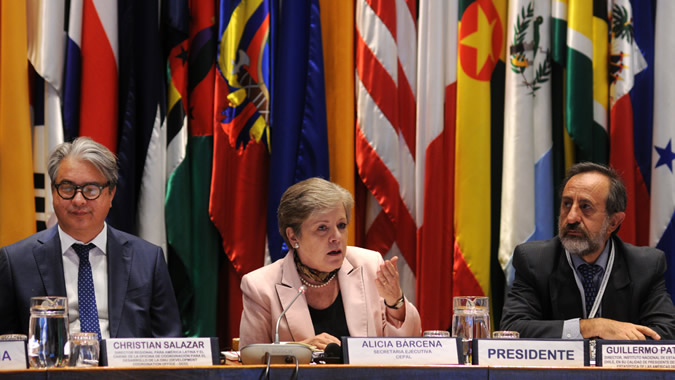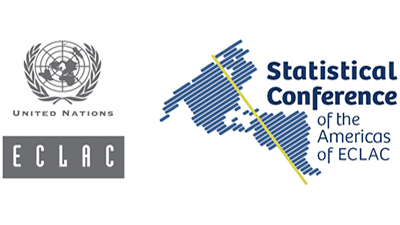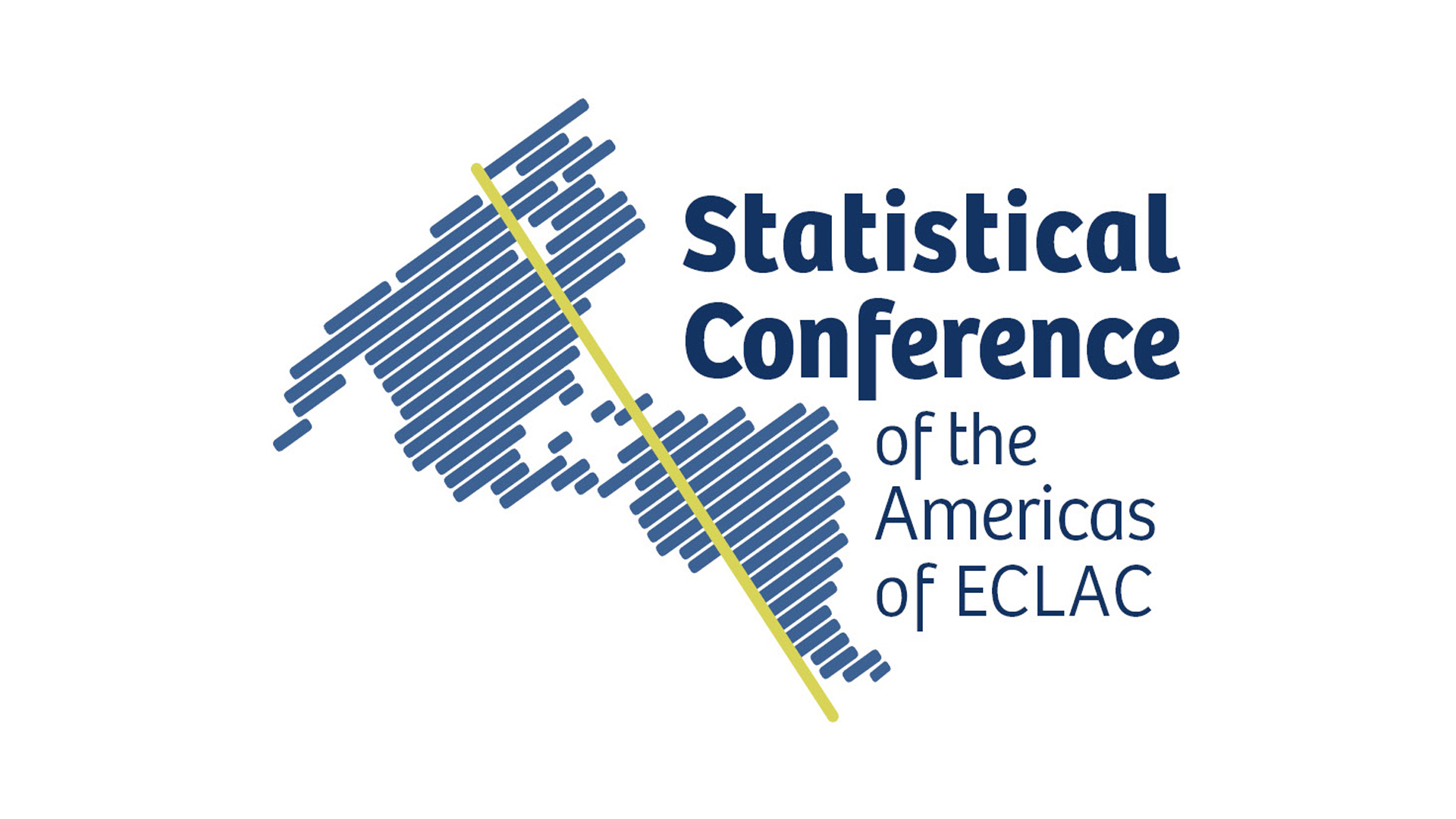Countries of the Region Reaffirm the Importance of Strengthening and Integrating National Statistical Systems
Work area(s)
The eighteenth meeting of the Executive Committee of the Statistical Conference of the Americas (SCA) was inaugurated today at ECLAC’s headquarters in Santiago, Chile.

Representatives of national statistics institutes in Latin America and the Caribbean reaffirmed today the importance of strengthening and integrating national statistical systems to obtain reliable and quality data that allows for providing follow-up and facing the challenges posed by the 2030 Agenda for Sustainable Development, while gathered at the inauguration of the eighteenth meeting of the Executive Committee of the Statistical Conference of the Americas (SCA).
The meeting – which is being held through Thursday, March 28 at the central headquarters of the Economic Commission for Latin America and the Caribbean (ECLAC) in Santiago, Chile – was inaugurated by Alicia Bárcena, ECLAC’s Executive Secretary, and Guillermo Pattillo, Director of the National Institute of Statistics (INE) of Chile, in his role as Chair of the Statistical Conference of the Americas.
Other participants included representatives of agencies of the United Nations system such as UN Women, the United Nations Population Fund (UNFPA), the United Nations Office on Drugs and Crime (UNODC), the United Nations Office for Disaster Risk Reduction (UNISDR), the United Nations Office of the High Commissioner for Human Rights (OHCHR), the World Food Program (WFP) and the United Nations Environment Program (UNEP).
Also present at the meeting were representatives of specialized organizations, including the World Health Organization and the Pan American Health Organization, and of intergovernmental bodies, such as the Inter-American Institute for Cooperation on Agriculture (IICA) and Paris 21.
In her inaugural speech, Alicia Bárcena highlighted that having quality, timely and reliable statistics is a valuable asset for governments that seek to propose evidence-based policies, and also for society as a whole, which needs that information to participate in public debates in an informed and proactive way.
The senior United Nations official noted that the current context is particularly challenging for the field of statistics due to growing demand for data that is ever more timely and disaggregated. In addition to this, new sources of information for producing data and new actors with the capacity for generating and processing them have been emerging, driven by technological development.
For that reason, she indicated, it is necessary to give greater visibility to the importance of statistics for decision-making, as well as to promote the capacity and autonomy of National Statistics Offices to coordinate National Statistical Systems and develop National Statistical Plans that address all the data production that is needed.
Alicia Bárcena stressed that the Statistical Conference of the Americas represents an excellent example of how a regional space for collaboration is both necessary and useful for countries to be able to work jointly, with the support of the United Nations, to find shared solutions to statistical challenges.
“This regional forum is an excellent mechanism for addressing the challenges that the 2030 Agenda process creates and for designing and calculating the indicators needed for its Sustainable Development Goals, since it has already done significant work to close capacity gaps between countries of the region, with the objective of ‘leaving no one behind,’” she stated.
Bárcena also reiterated the importance of supporting the statistical development of Caribbean countries.
“At ECLAC, we have made the Caribbean our first priority. We have called our strategy ‘Caribbean First’. It is critical that all of us help with the Caribbean’s statistical development,” she underscored.
Meanwhile, in his remarks, the Director of INE-Chile, Guillermo Pattillo, affirmed that diverse challenges remain in Latin America and the Caribbean, such as strengthening a more adequate institutional framework and adopting new forms of processing information.
“The future is much closer to data processing than to the data surveys we are doing,” he indicated.
“We want the work over these few days to give rise to a qualitative leap and we want to be able to say in November, at the tenth meeting of the Statistical Conference of the Americas that will be held in Chile, that some gaps have improved,” he stated.
At the meeting, attendees will analyze from different perspectives the strategic challenges and priorities for the region’s statistical development. These priority areas and the expected outcomes will serve to guide the preparation of the Working Groups’ programs of activities for the 2020-2021 period.
In addition, progress on implementing the SCA’s Biennial Program of Regional and International Cooperation Activities, 2018-2019 will also be assessed.
The Statistical Conference of the Americas is a subsidiary body of ECLAC and the main forum for discussing the development of statistics in the region. Its main objectives are to promote the development and improvement of national statistics and their international comparability, along with international, regional and bilateral cooperation among national offices and international and regional agencies.
Along with Chile in the Presidency, the SCA’s Executive Committee for the 2018-2019 period is made up of Canada, Costa Rica, Italy, Jamaica, Mexico and Peru, in accordance with what countries agreed upon at the Ninth Meeting of the Conference, held in November 2017 in Aguascalientes, Mexico.
Related event

Eleventh meeting of the Statistical Conference of the Americas of ECLAC
This eleventh meeting of the SCA-ECLAC, as well as the side-events will be held virtually.
Related content

Latin American and Caribbean Countries Will Analyze the Strategic Challenges and Priorities for Regional Statistical Development
The Executive Committee of the Statistical Conference of the Americas of ECLAC will hold its eighteenth meeting on March 27-28 at the regional organization’s headquarters in Santiago, Chile.
Related link(s)
Country(ies)
- Latin America and the Caribbean
Contact
Public Information Unit
- prensa@cepal.org
- (56 2) 2210 2040
